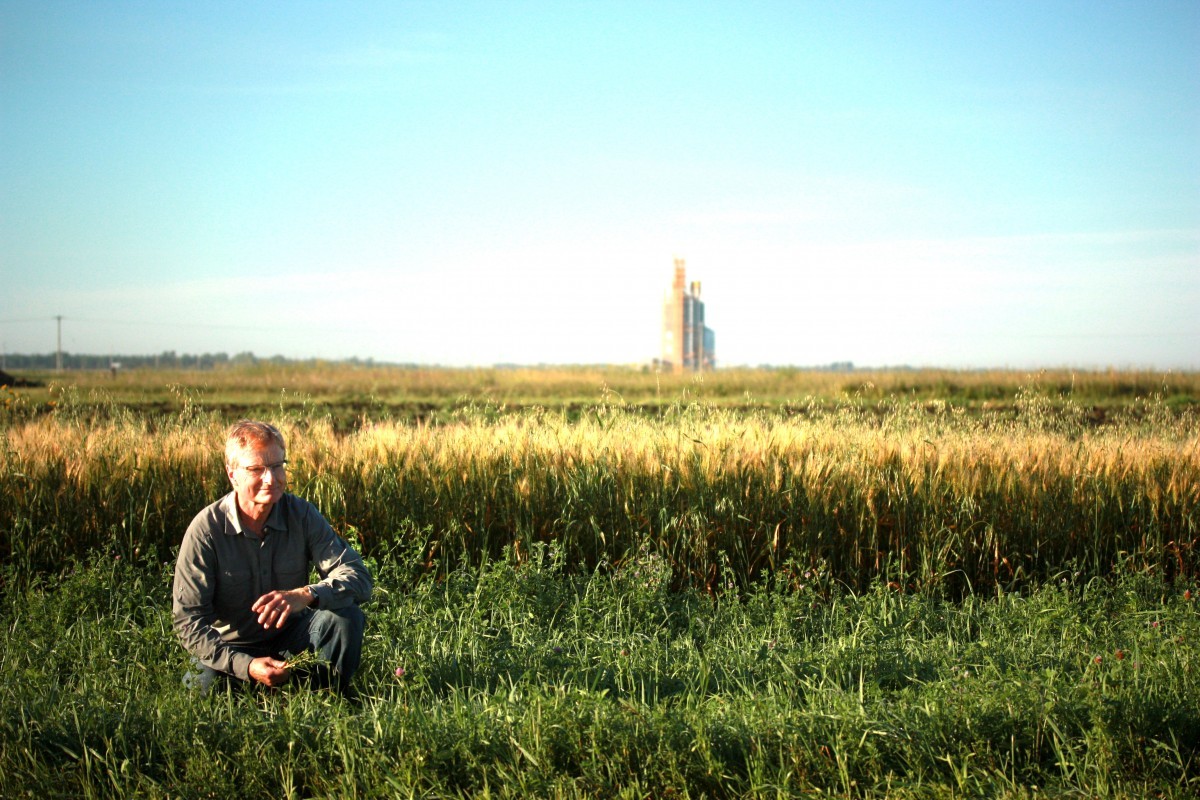
Organic agronomy training aims to respond to growing demand from producers
A free course coming in early January offers agronomists and farmers the opportunity to learn from one of the Canada’s top organic experts.
The online “Organic Agronomy Training” series made up of five sessions will run in the mornings from January 5-13, and is being provided by the University of Manitoba’s Dr. Martin Entz, professor in the Department of Plant Science.
The training is organized by the Prairie Organic Development Fund, an organization established to fund innovative organic initiatives. One of the course organizers, Laura Telford who is an organic specialist with Manitoba Agriculture, said the course is designed for public and private sector agronomists who work with organic producers, and may be especially useful to those less familiar with organic practices.
“Based on practical experience in European countries that have converted many more acres to organic, the fastest way to increase the adoption of organic methods is to use mainstream institutions such as agronomists. From our own experience, we know that agronomists get production questions from organic producers and they want to do their best in providing advice,” she said.
“However, they sometimes lack both the practical experience and scientific knowledge about advances in organic to be able to do this, or may feel reticent in providing advice. By providing training in key areas of organic production from a leading researcher in the field, we hope to provide more confidence and ability to work with organic producers.”
Grain farmers considering a transition to organic or current practitioners who want to learn the theory and latest science will also find the course valuable. Regenerative farmers as well as mainstream farmers hoping to reduce their dependence on inputs will also benefit from the training sessions. While the trainings are intended primarily for the Prairie region, they will cover the basics of organic production methods which will be relevant to organic grain production anywhere.
An additional incentive to attend?
“With the federal Government’s commitment to reduce greenhouse gases associated with mineral fertilizers by 30%, all farmers should learn about how to build more complex rotations that depend on biological nitrogen fixation and about soil management practices that can store atmospheric carbon.” said Telford.
Course instructor Martin Entz leads the Glenlea study – Canada’s oldest organic-conventional farming systems comparison study. In 2011, Martin started Canada’s first farmer participatory wheat and oat breeding program focused on organic production. He has taught crop production and agroecology courses to university students, and has supervised nearly 50 graduate students.
“The goal of my program is to discover new ways of farming ecologically; to empower farmers with knowledge to design farming systems adapted to where they live; and to engage students in this exciting process,” he said.
The 75-minute sessions cover introductory material on:
- Nutrient management in organic cropping systems
- Seeds and seeding systems for organic agriculture
- Insects and disease management in organic agriculture, and
- Improving soil health in organic systems
The modules will be recorded so that registrants can catch up if they miss a session. Attendees can pose questions throughout the trainings, either live or via email after viewing recorded sessions, and all questions will be addressed in the final training on January 13.
Certified Crop Advisory (CCA) continuing education unit credits are possible through this course as follows:
- January 5 – Nutrient management credit (1 CEU)
- January 6 – Crop management credit (1 CEU)
- January 10 – Integrated pest management credit (1 CEU)
- January 12 – Soil and water credit (1 CEU)
- January 13 – Crop management credit (1 CEU)
To register, visit https://www.eventbrite.ca/e/organic-agronomy-training-tickets-435737882737






